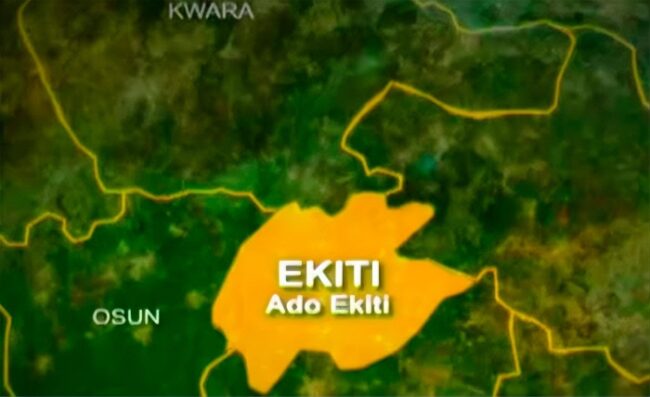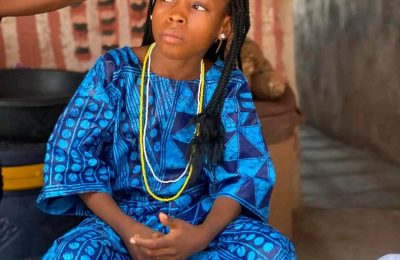
The Ekiti state government has said that the World Bank-assisted Adolescent Girls Initiative for Learning and Empowerment (AGILE) has surpassed its primary target of enhancing school enrolment, assisting economically disadvantaged students, promoting academic achievements and reducing the number of out-of-school children in the State.
The commissioner for Information, Taiwo Olatunbosun who made this assertion in Ado Ekiti after an assessment tour of the projects across the state, attributed the remarkable achievement recorded by AGILE programme to the commitment of the State Government and diligence of the Project Implementation Unit (PIU).

He described the project as appropriate and in tandem with Governor Oyebanji’s resolve to provide qualitative education at all levels as enshrined under the Human Capital Development Agenda of the six pillars of the administration.
Olatunbosun recalled that the state was the first sub-national in the country to launch the AGILE project at the State level in April, 2023 when the wife of the State Governor, Dr. Olayemi Oyebanji officially launched the scheme in Ado-Ekiti.
He explained that the commitment of Oyebanji’s administration to educational excellence necessitated the Governor’s declaration of free and compulsory education at both primary and secondary school levels in the State at the inception of his administration, adding that this remarkable move has helped in raising school enrolment in the State to one of the highest in the country.
He added that Governor Oyebanji also pledged the readiness of his government to forge strong and invincible partnerships with intending private investors to strengthen education, assuring that the war against Illiteracy and school dropout will be total under his administration.
He noted that the state government paid a huge sum of N6.2 billion as counterpart funding to benefit from the Universal Basic Education fund and deployed another sum of N400 million to offset debts owed contractors handling projects at the State Universal Basic Education Board (SUBEB) as part of efforts at sustaining and even surpassing past glory recorded by the state in the education sector.
According to him, Governor Oyebanji had repeatedly stressed his belief that, “ideas rule the World and the only way you can get ideas is through knowledge, while the only means to acquire knowledge is through education.
ALSO READ: JUST IN: Court dismisses Phillip Shaibu’s plea to nullify Ighodalo’s candidacy
“ We therefore decided to prioritize access to quality education because we also know that the quality, relevance and functionality of education are very important.”
He said that AGILE had substantially boosted the conducive teaching and learning environment in the state, “ with the colossal overhaul of infrastructure in 203 public schools through School’s Improvement Grants classified into small, medium and massive categories.”
Highlighting the projects executed in the State under the AGILE scheme, Olatunbosun stated that,” 613 toilets, 923 classrooms, 31 school perimeter fences, 59 boreholes were constructed while 2,470 teaching and learning materials including charts, maps, graphs, posters, textbooks, educational software, lab equipment and 4,012 pieces of furniture were also procured which culminated in 16.9 percentage increase in enrolment from 111,546 to 130,357 in public secondary schools in the State.”
The Commissioner said that the State is also set to commence the Second Chance Education Programme tagged ‘Ekiti State Girls’ Finishing School’ in September this year.
“Admission forms are already out free of charge for interested adolescent girls between the ages of 10-20 that did not finish schooling for various reasons including financial challenges, Living with Disabilities, domestic violence, gender-based violence (GBV), early marriage and pregnancy but are willing to re-enrol to complete their education,” he said.
Olatunbosun explained that the programme specifically targeted individuals who, for a variety of reasons, never attended or left school before completing of the level of education in which they were enrolled.
He maintained that the programme offers the opportunity to re-enter into formal education with the necessary support to continue and complete beneficiaries’ academic journey with vocational education and entrepreneurship training provided to equip the girls with skills needed to pursue employment opportunities or start their own businesses adding that the emphasis is to foster economic independence.
He said, “The target is to provide an opportunity for adolescent girls to thrive, regardless of their background or circumstances with an opening for them to acquire proper education akin to the kind and level of education that is normally acquired in childhood or youth during the initial first cycle of education and rise above their previous circumstances.”







